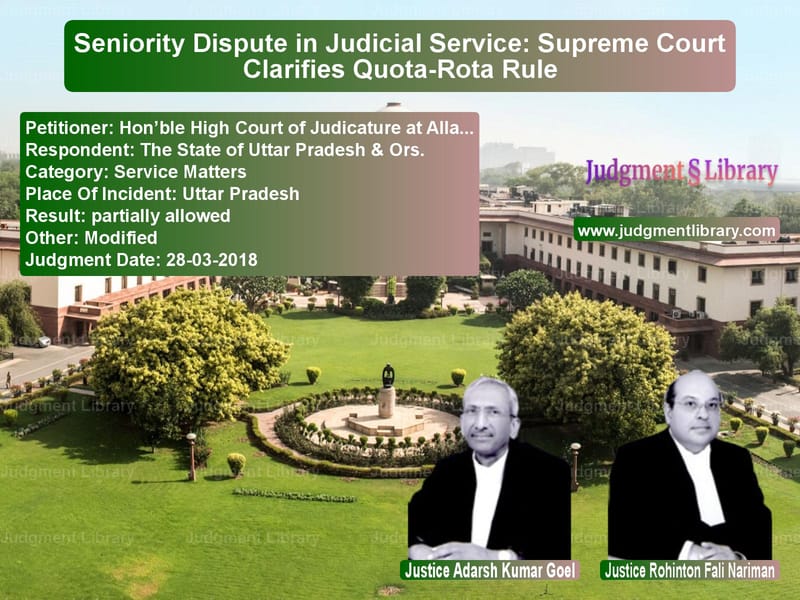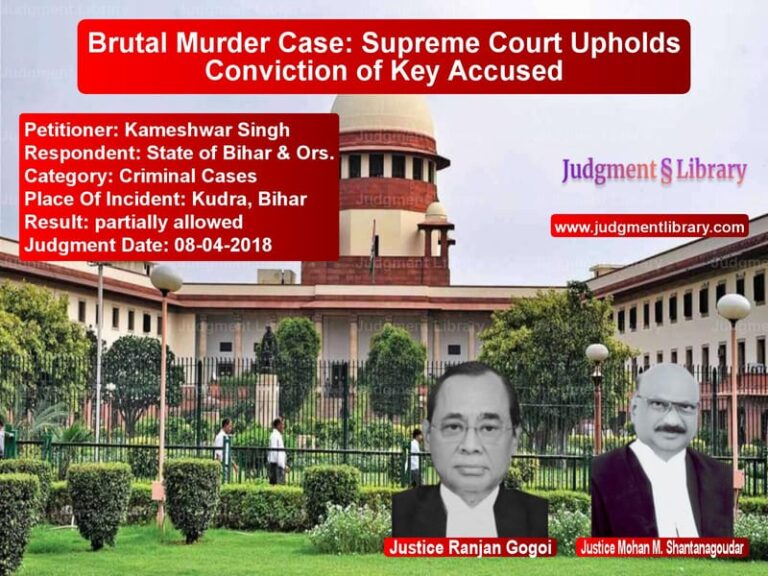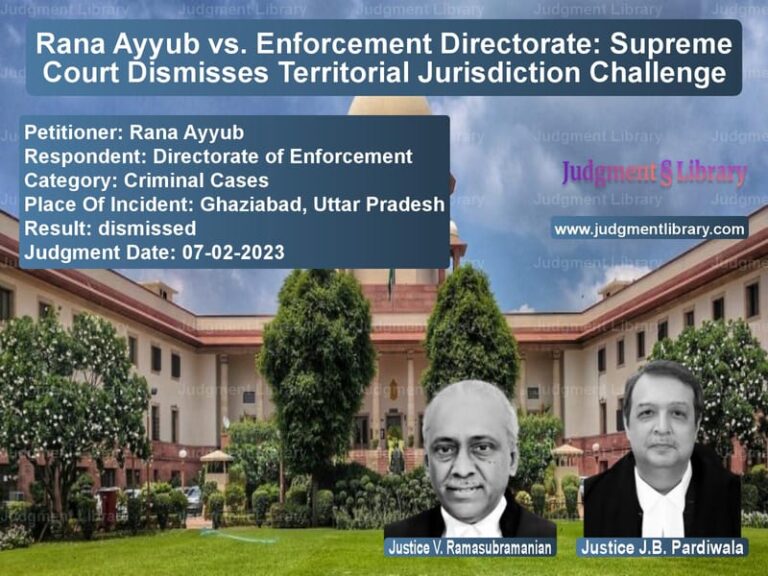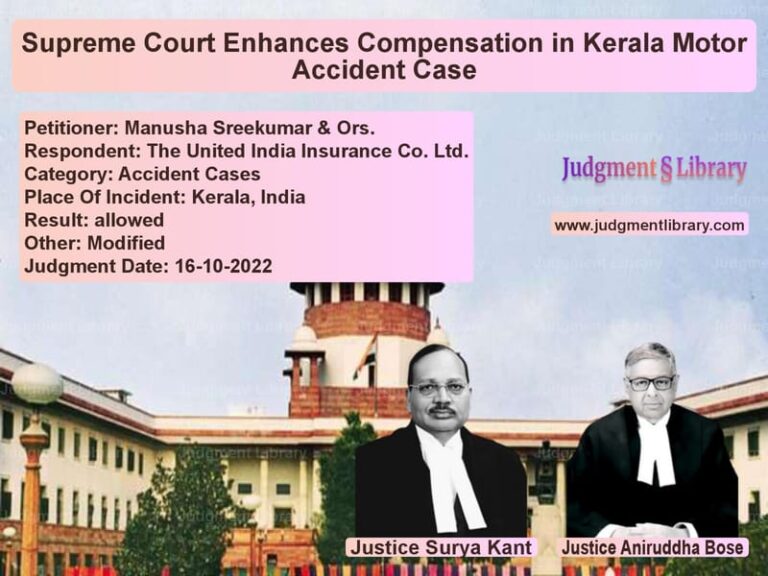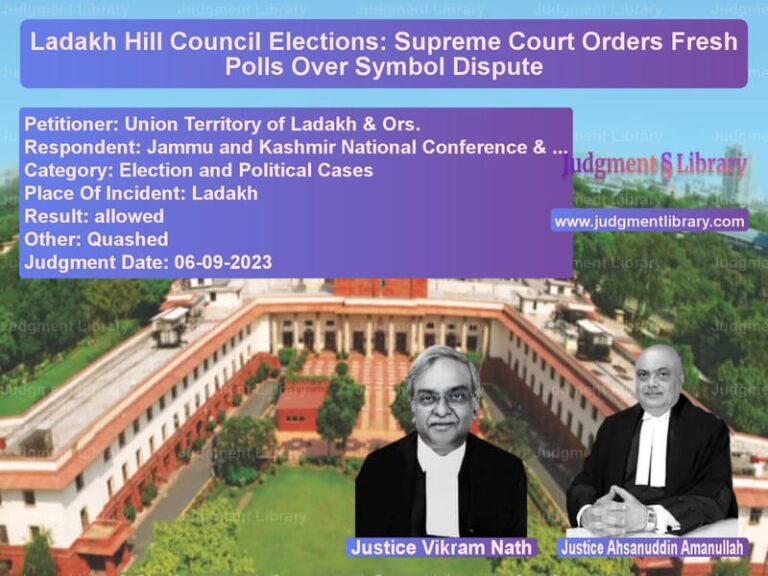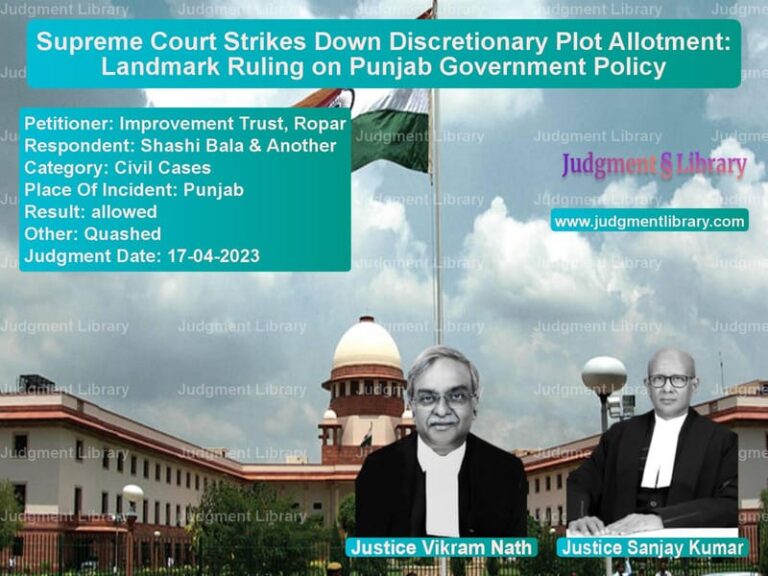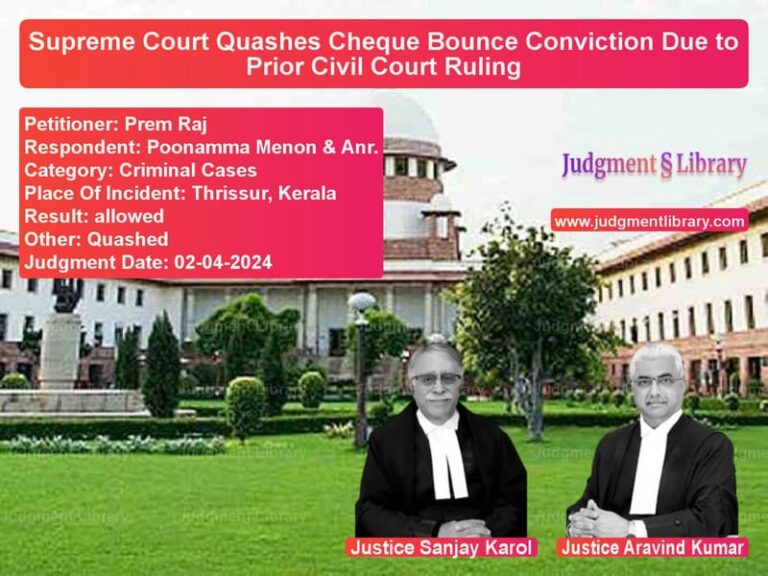Seniority Dispute in Judicial Service: Supreme Court Clarifies Quota-Rota Rule
The Supreme Court of India, in Hon’ble High Court of Judicature at Allahabad v. The State of Uttar Pradesh & Ors., addressed a significant dispute regarding the seniority of promotee and direct recruit judges in the Uttar Pradesh Higher Judicial Service (HJS). The case revolved around the correct interpretation of Rules 22 and 26 of the Uttar Pradesh Higher Judicial Service Rules, 1975, particularly concerning the application of the Quota-Rota Rule in determining seniority.
Background of the Case
The controversy began when direct recruits and promotees from the years 2007 and 2009 raised disputes regarding their relative seniority in the HJS. The issue stemmed from amendments to the recruitment process, including changes to promotion rules and the implementation of a roster system. Various judicial officers claimed that their seniority had been improperly determined, leading to multiple legal challenges.
Key Events
- In 2007, vacancies were determined under the amended U.P. Higher Judicial Service Rules, introducing the suitability test for promotions.
- Direct recruits and promotees were appointed through separate processes in 2008 and 2009.
- Senior judicial officers challenged the determination of their seniority, arguing that the rules were not followed correctly.
- The matter reached the Allahabad High Court, which ruled in favor of the direct recruits by applying the Quota-Rota Rule.
- The promotee officers appealed to the Supreme Court, seeking to restore their seniority.
Legal Issues Before the Supreme Court
The Supreme Court was asked to decide:
- Whether the Quota-Rota Rule should be applied strictly in determining the seniority of promotees and direct recruits.
- Whether the delay in holding suitability tests for promotions affected the seniority of promotees.
- Whether promotees could claim seniority from the date of eligibility rather than the date of appointment.
Arguments of the Parties
Petitioner’s (Promotees’) Arguments
- They were eligible for promotion much earlier but could not be appointed due to administrative delays.
- They had been officiating in higher positions and performing judicial duties before direct recruits were appointed.
- Applying the Quota-Rota Rule retroactively would unfairly disadvantage them.
Respondent’s (Direct Recruits’) Arguments
- The seniority should be determined as per the Quota-Rota Rule.
- They were selected through a competitive process and should not be placed junior to promotees who were appointed later.
- Promotees could not claim seniority from the date of their eligibility but only from the date of their actual appointment.
Supreme Court’s Analysis and Judgment
The Supreme Court, comprising Justice Adarsh Kumar Goel and Justice Rohinton Fali Nariman, delivered a detailed ruling on the issue.
1. Applicability of the Quota-Rota Rule
The Court emphasized that the Quota-Rota Rule was mandatory under Rule 22 of the HJS Rules:
“Appointments to the service shall be made on the basis of the roster system, ensuring that the rotational principle between direct recruits and promotees is maintained.”
2. Delay in Holding Suitability Tests
The Court acknowledged that administrative delays in conducting suitability tests had affected the appointment process. However, it ruled:
“Seniority cannot be claimed from a date prior to the actual appointment. The delay in holding suitability tests does not grant promotees a right to claim seniority retrospectively.”
3. Final Ruling on Seniority
The Court found that the High Court had erred in completely disregarding the legitimate claims of the promotees. It ruled:
“While the Quota-Rota Rule must be followed, its application must be balanced against practical realities. The seniority of promotees should be based on their date of appointment, and direct recruits cannot claim retroactive seniority.”
Final Judgment
The Supreme Court issued the following directives:
- The High Court’s decision granting retrospective seniority to direct recruits was overturned.
- Promotees would retain their seniority from the date of their actual appointment.
- The Quota-Rota Rule would apply prospectively to ensure fair allocation of vacancies.
- The Allahabad High Court was directed to implement the revised seniority list accordingly.
Impact of the Judgment
This ruling has significant implications for judicial appointments in India:
- Clarity on Seniority Rules: The decision provides a clear framework for determining seniority in judicial services.
- Balanced Approach to Promotions: The Court ensured that both direct recruits and promotees are treated fairly.
- Prevention of Future Disputes: The ruling establishes a precedent that prevents administrative delays from affecting seniority rights.
Conclusion
The Supreme Court’s decision in Hon’ble High Court of Judicature at Allahabad v. The State of Uttar Pradesh & Ors. sets a crucial precedent for resolving seniority disputes in judicial services. By balancing the Quota-Rota Rule with practical realities, the Court has ensured a fair and equitable outcome for all judicial officers involved.
Petitioner Name: Hon’ble High Court of Judicature at AllahabadRespondent Name: The State of Uttar Pradesh & Ors.Judgment By: Justice Adarsh Kumar Goel, Justice Rohinton Fali NarimanPlace Of Incident: Uttar PradeshJudgment Date: 28-03-2018
Don’t miss out on the full details! Download the complete judgment in PDF format below and gain valuable insights instantly!
Download Judgment: Hon’ble High Court o vs The State of Uttar P Supreme Court of India Judgment Dated 28-03-2018.pdf
Direct Downlaod Judgment: Direct downlaod this Judgment
See all petitions in Promotion Cases
See all petitions in Recruitment Policies
See all petitions in Public Sector Employees
See all petitions in Judgment by Adarsh Kumar Goel
See all petitions in Judgment by Rohinton Fali Nariman
See all petitions in partially allowed
See all petitions in Modified
See all petitions in supreme court of India judgments March 2018
See all petitions in 2018 judgments
See all posts in Service Matters Category
See all allowed petitions in Service Matters Category
See all Dismissed petitions in Service Matters Category
See all partially allowed petitions in Service Matters Category

